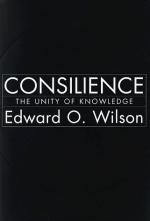
|
| Name: _________________________ | Period: ___________________ |
This quiz consists of 5 multiple choice and 5 short answer questions through The Social Sciences.
Multiple Choice Questions
1. How do nerve cells in the brain connect?
(a) Through synapses.
(b) Through dendrites.
(c) Through axons.
(d) Through neurons.
2. What does Edmund Wilson say is the purpose of the social science?
(a) To demonstrate how to conquer other cultures.
(b) To provide a way to control the future.
(c) To Keep suppressed cultures alive.
(d) To reveal the hidden meanings in people's actions.
3. What would need to be true before we could establish the goals and progress of evolutionary processes, in Wilson's account?
(a) We would have to have tools that would let us predict how random acts would play out.
(b) The human race would have to have been obliterated like the dinosaurs.
(c) We would have to know the future of our race.
(d) We would need to know that evolution tended toward increase complexity.
4. Why have scientific models of the brain failed to explain consciousness?
(a) Because living and reproducing do not require self-understanding.
(b) Because consciousness is always shifting and cannot be modeled.
(c) Because models of brain activity do not replicate the sense of 'being there' inside the brain.
(d) Because scientists are limited in the experiments they can perform on human beings.
5. When did the Enlightenment end, in Wilson's account?
(a) 1776.
(b) 1789.
(c) 1794.
(d) 1742.
Short Answer Questions
1. What does temporal-lobe epilepsy cause?
2. What decision was effectively made in human evolution as the brain found its present size?
3. What event marks the end of the Enlightenment, in Wilson's account?
4. Where is the seat of consciousness in the brain?
5. How does Edmund Wilson describe the current era of economics?
|
This section contains 313 words (approx. 2 pages at 300 words per page) |

|




